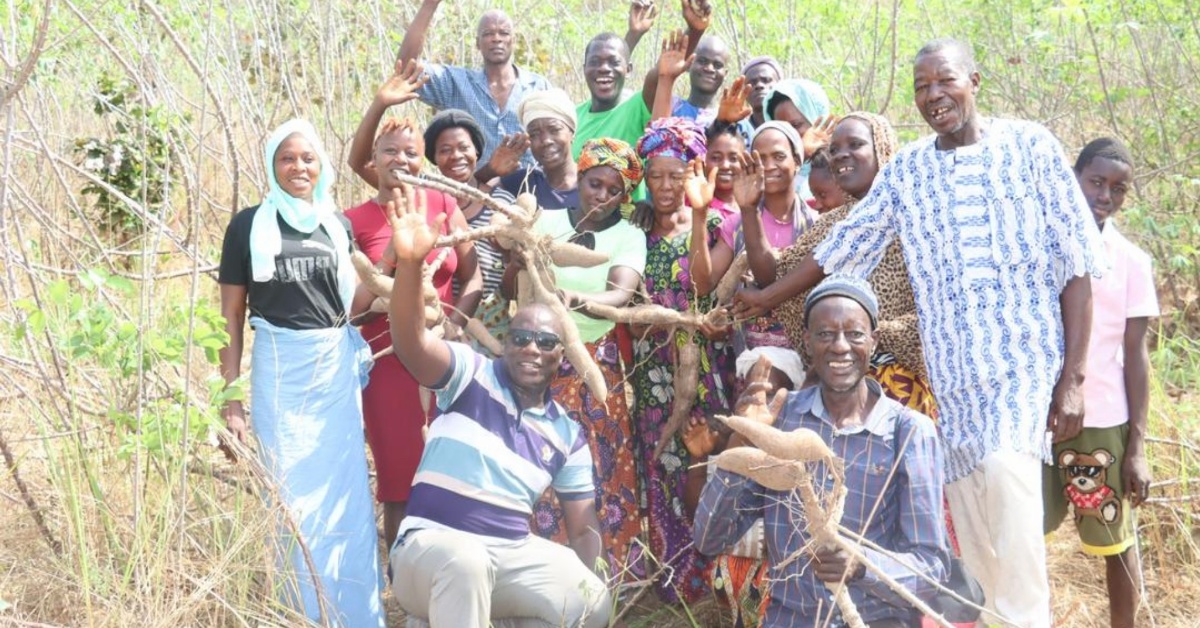Women farmers in Koinadugu District are reaping the benefits of the Cassava Value Chain Strengthening for Improved Food Security and Sustained Income Project, a transformative initiative funded by the German Federal Ministry for Economic Cooperation and Development (BMZ).
The project, implemented through ChildFund Germany and ChildFund Sierra Leone in partnership with the Daindemben Federation in Koinadugu and Munafa-M’patie Federation in Bombali, is enhancing food security, boosting household income, and promoting child protection across Sierra Leone’s rural communities.
For years, smallholder farmers in Koinadugu practiced subsistence farming with little to no financial returns. However, through the BMZ project, women farmers have been encouraged to form cooperatives, leveraging collective strength to improve productivity and market access.
Kalie Koroma, the Public Relations Officer (PRO) of one such cooperative, described the initiative as a game-changer. “Before now, we were not receiving anything from our produce,” he stated. With newly acquired knowledge and resources, farmers are now reinvesting their earnings into expanding their agricultural ventures, including ruminant farming.
Kumba Mansaray, chairlady of the cooperative, highlighted how the project reshaped their understanding of cassava farming. Previously, cassava was grown primarily for household consumption, but training sessions revealed its commercial potential. As a result, the farmers are now preparing for a large-scale harvest, aiming to establish cassava as a profitable cash crop.
In addition to increasing yields, the project introduced farmers to sustainable agricultural practices, such as repurposing cassava peels into animal feed. This innovation not only reduces waste but also provides an additional source of income through livestock farming.
Recognizing the impact of climate change on agriculture, the project also provided training on climate-smart farming techniques. Saio Sesay, an adviser to the farmers, emphasized the importance of these lessons. “Climate change is a new phenomenon to us, but through the training, we have learned how it affects farming and what we can do to adapt,” he noted.
However, despite these improvements, transportation remains a major challenge. Farmers struggle to transport their produce to markets in Kabala due to high costs. To address this issue, they plan to process cassava into flakes, a more marketable product that can be transported efficiently and sold at a higher price.
Beyond farming, the BMZ project also integrates child protection awareness into its framework. Training sessions educate parents on safeguarding children from exploitation, abuse, and trafficking.
Yainku Mansaray, the group’s financial secretary and a member of the Child Welfare Committee (CWC), stressed the importance of these discussions. “We learned to report cases of child labor and abuse through the 117 hotline instead of settling them informally,” she explained.
Parents were also encouraged to monitor their children’s education and prevent early marriages. Community leaders, including chiefs and religious figures, were sensitized on national laws such as the Child Marriage Act, reinforcing the need to uphold children’s rights.
With ten cooperatives comprising 40 members each, the project has already made a significant impact. Looking ahead, the farmers are eager to secure cassava processing machines, which will further enhance production efficiency and profitability.
Previously, poor storage methods led to losses from weevil infestations. Now, with improved techniques and access to new resources, farmers are confident in their ability to ensure food security, generate sustainable income, and secure a better future for their families.
The BMZ Cassava Value Chain Project is more than just an agricultural initiative—it is a comprehensive program fostering economic empowerment, community development, and child protection in Sierra Leone’s rural regions.



 Post a comment
Post a comment









